This post contains affiliate links.
Discover the joys of urban chicken keeping with my comprehensive guide. Learn essential tips for raising happy, healthy chickens in city environments and transform your urban space with the charm of backyard poultry. Thrive with urban chickens!
Whether you are a seasoned poultry enthusiast or just getting started, raising chickens in the city is a rewarding and delightful experience. I will guide you through the ins and outs of thriving with backyard chickens in an urban environment.
Introduction to Urban Chicken Keeping: Raising Backyard Chickens in the City
If you are curious about how to bring a rural tradition into your city life, then raising backyard chickens in the city may be the perfect adventure for you. Urban chicken keeping has gained significant popularity over recent years, and for good reason. Chickens in the city offer numerous benefits – from fresh eggs to natural pest control and even delightful companionship.
Urban chickens can adapt well to smaller spaces, making them ideal for city living. By providing a cozy coop and a safe run, you can transform your backyard into a haven for these charming birds. Whether you are new to chicken keeping or a seasoned poultry enthusiast, there is great joy in caring for your own flock of backyard chickens.
One of the first things to consider when diving into urban chicken-keeping is space. Chickens do not need acres of farmland, however they need enough space to roam and explore. A decent-sized chicken coop with an attached run is a dream setup created for your feathered friends.
Happy chickens lay eggs!

Notice the security latch above and the sturdy wire mesh below to keep predators out.
An essential factor when raising chickens in the city is to understand local regulations. Some municipalities have specific rules regarding noise, the number of chickens you can keep, and even coop placement. Always check with your local government to ensure you are compliant with any urban chicken-keeping laws. This will help avoid unnecessary fines and ensure you are respecting your neighbors.
Urban chickens require attention and daily care, similar to their rural counterparts such as a dog or cat. This includes providing fresh water, a balanced diet, and a clean living environment. Urban chicken owners find joy in the daily routine of feeding, watering, and collecting eggs. This creates a wonderful bond with the flock.
Noise control can be a concern when keeping chickens in the city, but there are ways to manage it effectively. Opting for hens rather than roosters will greatly reduce the noise level, as hens are typically much quieter. Additionally, ensuring your chickens have a comfortable and secure environment will minimize stress-induced noises.
It is rewarding to see your efforts result in fresh, homegrown eggs with urban chicken keeping. Raising chickens connects you with nature and fosters a sense of responsibility and sustainability. During the journey of urban chicken-keeping you will learn about the needs of chickens and the importance of community awareness. Urban chickens have proven to be a delightful addition to city living, offering both practical benefits and enriching experiences.
Take the plunge and start raising your own backyard chickens in the city and join a growing community of urban chicken enthusiasts who have discovered the joys of keeping chickens in an urban environment.
Essential Things To Know Before
Raising Backyard Chickens In The City
- Local Ordinances and Regulations:
- Check city zoning laws and regulations regarding backyard chickens.
- Determine the maximum number of chickens allowed.
- Understand any restrictions on rooster ownership.
- Obtain necessary permits or licenses.
- Space Requirements:
- Ensure adequate space for a chicken coop and run.
- Plan for at least 2-3 square feet per chicken inside the coop if they are allowed to free-range during the day and 5 square feet if they are not.
- Provide at least 8-10 square feet per chicken in the outdoor run.
- Chicken Coop Design:
- Design or purchase a predator-proof coop.
- Ensure proper ventilation and protection from the elements.
- Include nesting boxes, roosting bars, and easy access for cleaning.
- Position the coop to avoid noise and odor disruptions to neighbors.
- Choosing Chicken Breeds:
- Select breeds suited for egg production or meat, based on your goals.
- Consider breeds that are quieter and more docile for urban environments.
- Research breed-specific requirements for space and care.
- Feeding and Watering:
- Provide a balanced diet with quality commercial feed.
- Supplement with kitchen scraps, grains, and fresh greens.
- Ensure a constant supply of fresh, clean water.
- Use feeders and waterers designed to prevent spillage and contamination.
- Health and Welfare:
- Learn about common chicken diseases and prevention methods.
- Establish a relationship with a veterinarian experienced with poultry.
- Regularly clean and maintain the coop to reduce disease risk.
- Provide appropriate vaccinations and parasite control.
- Egg Collection and Management:
- Collect eggs daily to ensure freshness and prevent breakage.
- Store eggs properly, either in the fridge or a cool, shaded place.
- Develop a plan for excess eggs, such as sharing with neighbors or selling.
- Noise and Neighbor Considerations:
- Address potential noise issues from hens clucking or early morning activity.
- Communicate with neighbors about your plans and address any concerns.
- Ensure good coop hygiene to minimize odors.
- Consider visual barriers or plantings around the coop to enhance aesthetics.
- Legal Considerations:
- Understand your rights and responsibilities as a backyard chicken owner.
- Be aware of any potential liability issues.
- Stay informed about changes in local laws and regulations.
- Plan for the Future:
- Consider the lifespan of chickens and plan for long-term care.
- Have a strategy for managing waste and composting.
- Prepare for seasonal changes and potential weather challenges.
Preparing Your Chicken Coop and Run for Urban Chickens
When diving into urban chicken keeping, getting your chicken coop and run set up correctly is crucial for your backyard chickens’ health and happiness. If you are new to raising chickens or have some experience, a well-thought-out coop makes all the difference in urban chicken-keeping. I will guide you through essential considerations to create an ideal environment for your feathered friends in the city.
Urban spaces can be tight, however do not cut corners on your backyard chickens’ needs when it comes to coop size. Some backyard chicken enthusiasts say a chicken coop requires 3-4 square feet per chicken. While that may be true for Bantam chickens such as Japanese Silkies, I recommend 5 square feet per chicken for regular sized hens. This ensures they have plenty of room to move and rest comfortably. Also, consider vertical space. Chickens like to perch, therefore provide roosting bars high enough to keep them happy and entertained.
Ventilation is another critical aspect. Without proper airflow, coops will become stuffy and create respiratory issues. Ensure your coop has well-placed vents or windows that you can open and close, depending on the weather. Additionally, predators are a concern even in the city. Urban chicken keeping means safeguarding your chickens from local wildlife. Use strong, secure materials to build your coop and run.
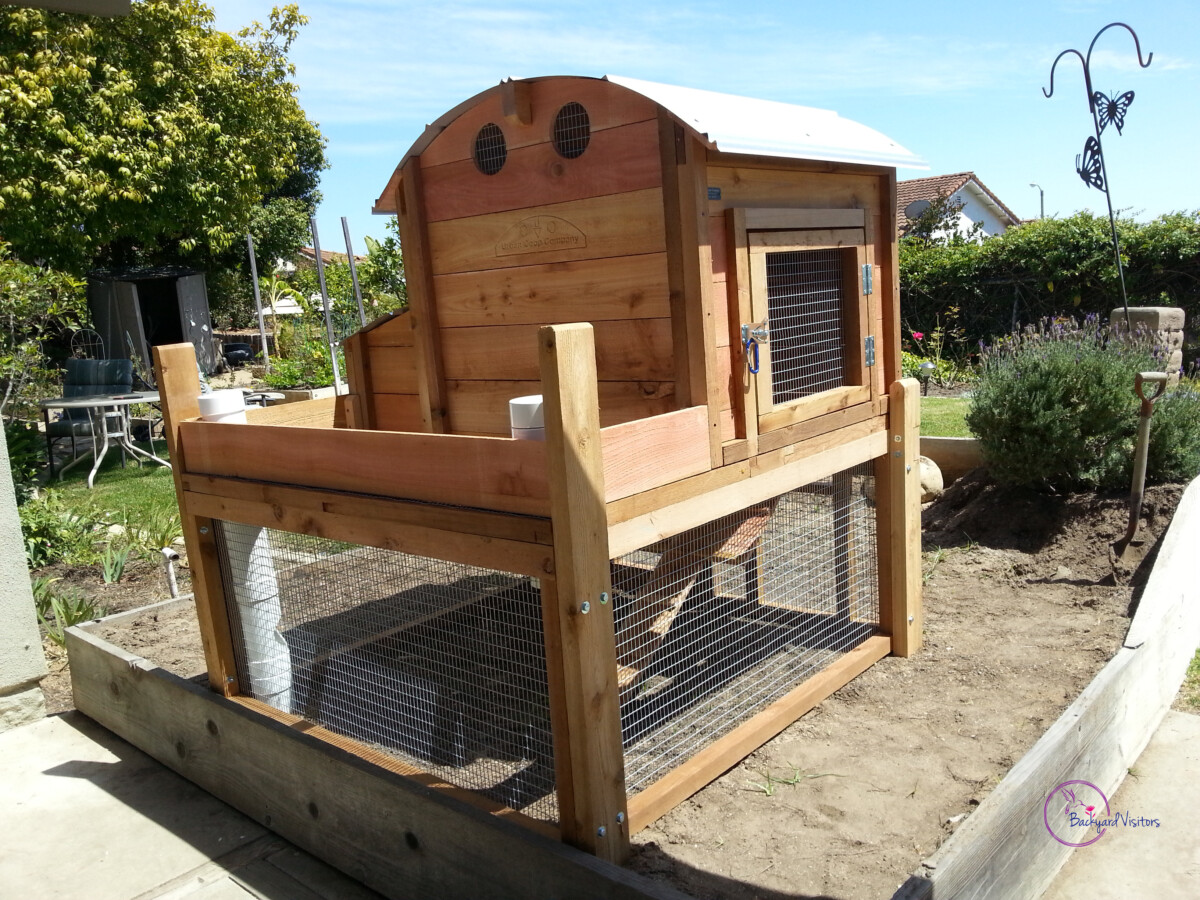
to allow contaminated air to escape.
My chicken coop is placed on a concrete slab to prevent any predators from digging under the coop to access my chickens. The coop is protected with 16 gauge galvanized hardware cloth to prevent predators from attempting to claw or chew through the wire. The doors are locked at night using a carabiner that is predator proof. The ladder inside the chicken coop under the roosting bars is lifted with the pull of a rope from the outside and secures the chickens safely for the night.
Space is key for a chicken run. Chickens need a safe outdoor area to forage and explore. Ideally, provide at least 8-10 square feet per bird in the run. Cover the run with a sturdy wire mesh to keep chickens safe from predators. Urban chicken-keeping often involves working within small yards, so consider a portable run that is movable. This keeps your chickens entertained, helps manage waste and prevents over-grazing.
Nest boxes are an essential part of any coop. For urban chickens, a dark, secluded spot encourages hens to lay eggs consistently. One nest box for every 3-5 hens is sufficient. Regular maintenance is necessary to keep chickens healthy, therefore ensure the inside of the coop is easy to clean and easy to access all parts of the coop.
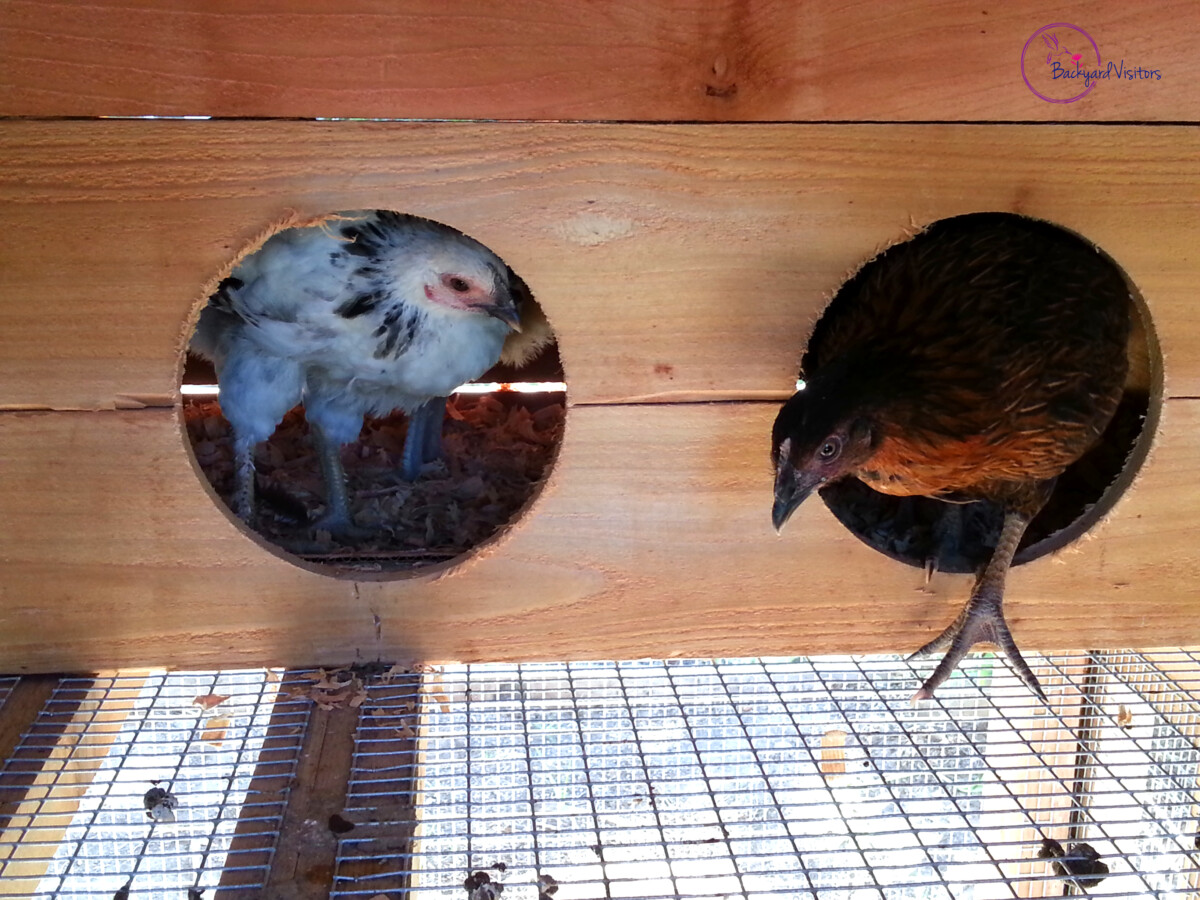
Chickens use grit to digest their food and dust baths to rid themselves of parasites. Provide an area with sand or fine dirt in your run to give your backyard chickens what they need to thrive. Urban chicken keeping is incredibly rewarding when paying attention to these details.
Finally, think about the aesthetic of your coop. Since it is in an urban setting, fuse the coops’ style into your garden or yard. Urban chicken-keeping is about functionality and visual taste so make sure your coop looks good in your space. Happy urban chicken keeping, and may your adventure in raising chickens be a fulfilling one!
Read my other related articles:
- Navigating City Ordinances and Neighbor Relations
- Designing an Urban Coop for Small Spaces
- The Benefits of Chickens in Urban Ecosystems
- Overcoming Challenges Specific to Chicken Keeping In Urban Settings
- Resources and Support for City Chicken Keepers
Challenges of Keeping Chickens in the City: Noise, Space, and Regulations
Raising backyard chickens in the city is incredibly rewarding, but it does come with its own set of challenges. When considering urban chicken-keeping, navigating around the issues of noise, space, and regulations are major factors.
Be mindful and know that managing chicken noise is crucial for your own sanity and also for keeping the peace with your neighbors. In an urban setting, noise complaints can quickly lead to a visit from your local animal control.
Unlike the countryside, where there is ample room to roam, urban environments often mean confined quarters. Your backyard may be smaller, therefore planning an efficient coop and run setup is key. Space constraints will also impact the well-being of your chickens. They need enough room to forage, stretch their wings, and engage in natural behaviors. Make sure to design your setup in a way that maximizes the available space without overcrowding your chickens.
Cities across the globe have different laws and regulations regarding keeping chickens. Some allow chickens without much restriction, while others have stringent rules. Before you dive into urban chicken-keeping, research your city’s codes thoroughly.
Compliance and following the law ensures that your chickens are healthy and that your neighbors are happy. Most regulations dictate the number of chickens allowed, the type of enclosure required, and sometimes even stipulate a permit process. Besides these major points, consider other subtle challenges of keeping chickens as pets in the city.
Urban predators are a real threat. While you may not have to worry about foxes as much, urban areas are teeming with raccoons, stray dogs and cats, and even rats, all of which will endanger your flock. Precautions such as secure locks on your coop and using hardware cloth instead of chicken wire adds an extra layer of security.
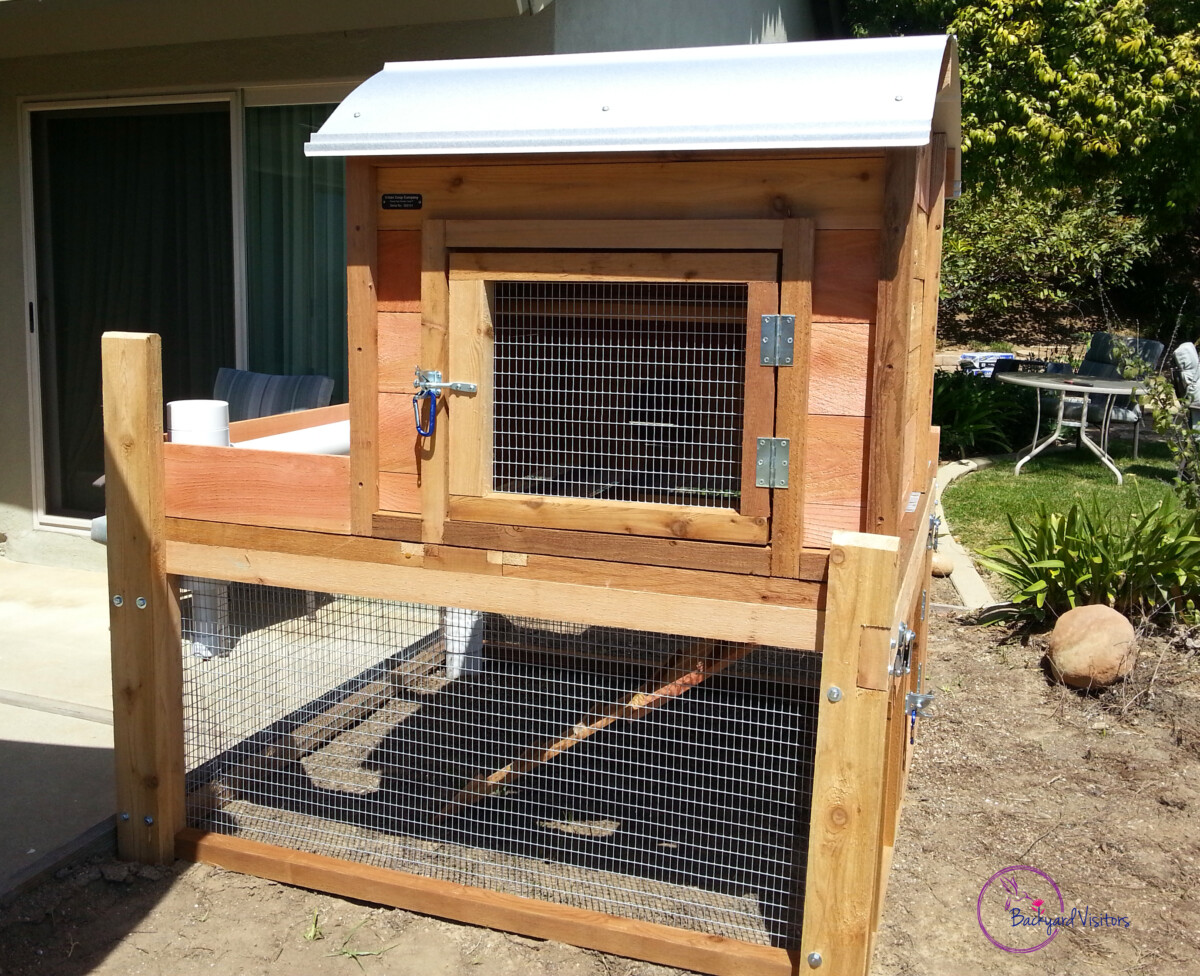

looking for its next meal.
In summary, keeping chickens in the city is a deeply rewarding venture but not without its challenges. Noise, space, and regulations are significant factors that require careful consideration and planning. With the right approach and a bit of adaptability, urban chicken-keeping is a fantastic way to enjoy the joys of keeping chickens as pets, even in a bustling city environment. You will gain a steady supply of fresh eggs and the companionship of delightful feathered friends.
Managing Chicken Noise Control in an Urban Environment
Managing chicken noise in an urban environment can be challenging, but possible, with several strategic measures to minimize disturbances and maintain a peaceful neighborhood. Here are some steps and methods to consider:
Housing and Location
- Coop Design: Ensure the coop is well-insulated to dampen sound. Use soundproofing materials to the walls such as insulation boards, foam panels, or dense wood to reduce noise transmission.
- Positioning: Place the coop as far away from neighboring homes as possible and use barriers such as fences or shrubs to deflect sound.
- Size: Ensure the coop is spacious enough to prevent overcrowding, as this leads to increased noise due to stress among the chickens.
Behavioral Management
- Rooster Control: Roosters are generally noisier than hens and are the primary source of loud crowing. Avoid keeping roosters in urban areas. Hens can provide eggs without the need for roosters.
- Regular Feeding: Chickens often make noise when they’re hungry. Regular feeding schedules can help keep them quieter.
- Routine: Establish a consistent feeding and lighting schedule to reduce stress and noise.
Environmental Enrichment
- Space and Toys: Provide enough space and enrichment items (like perches, dust baths, and toys) to keep chickens occupied and reduce stress-related noise.
- Consistent Routine: Maintain a consistent daily routine to reduce anxiety and noise.
- Enrichment: Provide enrichment such as perches, dust baths, and varied food to keep chickens occupied and content.
Sound Barriers
- Vegetation: Plant shrubs or install fences around the coop to act as natural sound barriers.
- Artificial Barriers: Use materials such as thick canvas or specially designed noise-reducing barriers around the coop.
- White Noise: Use white noise machines or water features to mask chicken noises.
Legal and Community Considerations
- Compliance: Ensure compliance with local ordinances regarding urban chicken keeping to avoid legal issues. Some areas have specific regulations to minimize disturbances.
- Communication: Inform neighbors about your chickens and address any concerns. Being proactive will prevent complaints.
- Egg Sharing: Offering neighbors fresh eggs can help maintain good relations and foster a positive attitude towards your chickens.
Training and Regular Monitoring
- Routine Training: Train chickens to follow a routine, such as going to bed early, which reduces morning noise.
- Positive Reinforcement: Use treats to encourage quiet behavior.
- Health Checks: Regularly check the health of your chickens. Healthy chickens are quieter than unhealthy chickens. Monitor for any unusual behavior that may indicate stress or discomfort, which increases noise levels.
Implementing these measures to significantly reduce chicken noise, making it easier to manage in an urban environment.

Raising Hens: What to Expect and How to Care for City Chickens
Raising hens in an urban environment is a rewarding experience that brings a little piece of the countryside right to your backyard. Urban chicken keeping is increasing in popularity, with more and more city dwellers exploring the joys and benefits of city chickens. Before you dive into raising chickens in your city home, it is essential to know what to expect and how to care for your feathered companions properly.
First, when raising hens in the city, research and comply with city ordinances and homeowner association rules.
Next, urban poultry requires adapted areas and space that fit within the constraints of urban living which include small backyards or even a large balcony. As crazy as it may sound, chickens can live anywhere (and yes, even on a city balcony) as long as local regulations are followed and their basic needs for space, safety, weather protection, cleanliness, health and welfare are met.
Ensure that your chicken coop is sturdy, provides adequate shelter for your hens and is predator-proof. They need a cozy place to nest and lay their eggs, as well as sufficient space to roam and peck during the day.
Urban chicken keeping entails being mindful of your neighbors. Noise control is a significant factor, as chickens, especially roosters, are quite vocal. However, since most cities have regulations prohibiting roosters, you will most likely raise hens, which are much quieter. It is crucial to stay compliant with local city ordinances and regulations.
Caring for chickens involves a consistent feeding and watering routine. Urban chickens require a balanced diet, consisting of high-quality commercial feed, supplemented with kitchen scraps and fresh greens. It is important to provide clean, fresh water daily to keep your hens hydrated and healthy. Treats such as mealworms given occasionally will delight your hens while providing extra protein.

All I have to do is shake the container, and they come running!
Another critical aspect of raising city chickens is maintaining coop cleanliness. A clean coop reduces the risk of pests such as mites and lice and prevents the buildup of harmful bacteria. Ensure that you clean the coop regularly, replace bedding materials, and use natural cleaning agents when necessary. This will reduce the risk of disease with your hens.
Urban poultry also require protection from extreme weather conditions. Hens are resilient, but in the winter in some places, you will need to ensure their coop is warm enough to prevent them from freezing. In the summer, provide shaded areas and plenty of ventilation to help keep them cool and stress-free. Regular health checks are vital for monitoring any signs of illness or distress. Catching and addressing problems early ensures your city chickens stay healthy and productive.
Raising hens in the city is a journey that requires commitment and planning, but the rewards of fresh eggs, reduced food waste, and the joy they bring are well worth the effort. With the right care and attention, your urban poultry will thrive and bring a taste of farm life to your urban existence.
What To Expect From Raising Chickens in an Urban Environment
- Local Regulations: Research and comply with city ordinances and homeowner association rules.
- Space Requirements: Ensure you have adequate space for a chicken coop and run.
- Noise Levels: Be prepared for noise from clucking and crowing, particularly from roosters.
- Predator Prevention: Implement measures to protect chickens from urban predators like raccoons, cats, and dogs.
- Health Maintenance: Regularly check for parasites and illnesses, and provide proper vaccinations if necessary.
- Egg Production: Expect consistent egg laying, but be aware of the seasonal and dietary factors that influence production.
- Waste Management: Plan for waste disposal and perhaps use chicken manure as a garden fertilizer.
- Feeding: Provide a balanced diet with appropriate feed and supplements, access to fresh water, and occasional kitchen scraps.
- Social Interaction: Chickens are social animals; consider keeping multiple hens to prevent loneliness.
- Coop Design: Invest in a well-ventilated, secure, and easy-to-clean coop to maintain chicken health and cleanliness.
- Daily Care: Be prepared for daily chores including feeding, watering, and egg collection.
- Public Perception: Gauge the attitudes of neighbors regarding raising chickens to foster a harmonious relationship.
- Noise Restrictions: Urban environments may have specific noise ordinances, particularly concerning roosters.
- Cost Factors: Initial setup costs and ongoing expenses for feed, bedding, and health care.
- Educational Opportunities: Raising chickens is a great learning experience, especially for children.
- Community Support: Engage with local urban farming communities or online groups for advice and support.
- Fresh Eggs: Enjoy the benefit of fresh, home-produced eggs with known dietary and ethical standards.
- Environmental Impact: Use chickens as part of sustainable living practices, such as composting and pest control.
- Weather Considerations: Be prepared to provide adequate shelter and climate control for extreme weather conditions.
- Time Commitment: Understand the time investment required for daily care and general upkeep of the flock.
Feeding and Diet Recommendations for Urban Poultry
Feeding chickens in the city is a rewarding and enjoyable experience and requires some special considerations. When raising urban poultry, it is important to ensure they receive a balanced diet for health and productivity. Urban environments often mean limited space and resources, therefore planning a proper poultry diet is crucial. Here are some feeding and diet recommendations for your urban poultry to thrive in a city setting.
Provide your chickens with commercial layer feed. This type of feed is specifically formulated to meet the nutritional needs of laying hens and is found at most feed stores or online.
Offer a consistent and balanced diet to keep your backyard chickens healthy. Additionally, consider supplementing their diet with fresh greens and vegetable scraps from your kitchen. These additions provide essential vitamins and minerals that may not be present in commercial feed.
In an urban environment, space can be limited, so it is important to get creative with how you offer these supplements. Use hanging feeders or small troughs to save space and minimize waste. Include a source of grit, such as crushed oyster shells or commercial grit, essential for helping your chickens digest their food.
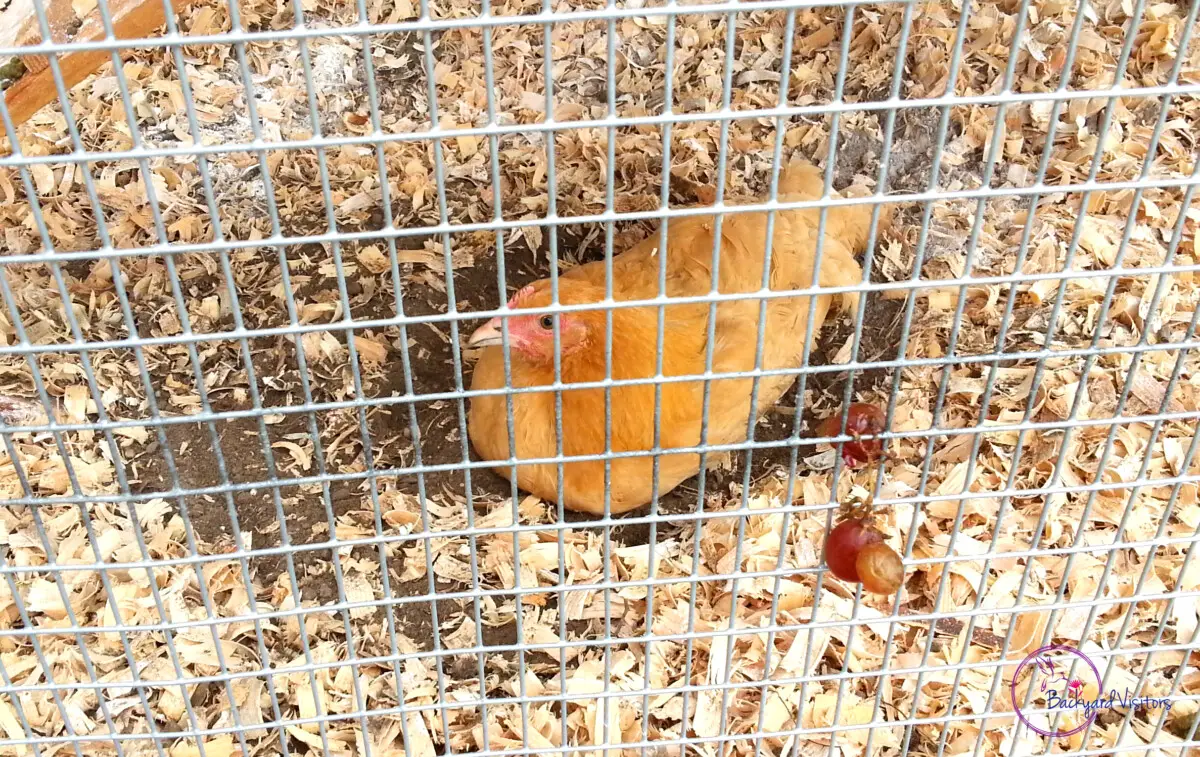
Chickens do not have teeth, therefore grit aids in the breakdown of grains and other feed components.
Water is as important as feed when it comes to keeping your urban poultry healthy. Ensure they have a constant supply of fresh, clean water. There are backyard-friendly waterers designed to be space-efficient and to reduce spillage. Change the water regularly to prevent contamination and ensure your chickens stay hydrated, especially during hot urban summers.
Urban chickens may sometimes be more susceptible to stress due to noise and other environmental factors, so boosting their diet with supplements will help keep them in top shape.
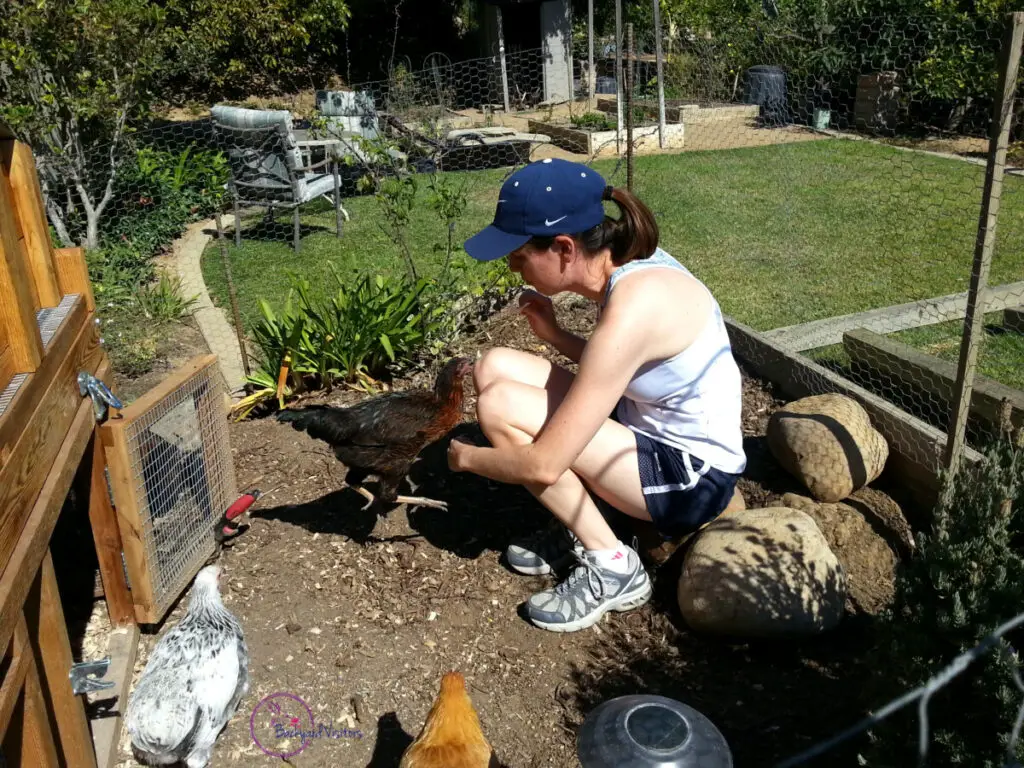
They are not pullets anymore, and they get along just fine,
but there is still a pecking order!
Remember, every flock is different, so adjust feeding and diet recommendations based on your specific urban setup and the needs of your chickens. Keep an eye on your birds’ health, feather condition, and egg production to gauge if any diet changes are necessary.
Regularly check for signs of deficiencies, such as poor feather quality or lethargy, and adjust their diet accordingly.
In conclusion, keeping chickens in the city involves planning and creativity. By providing a balanced and varied diet, ensuring access to fresh water, and incorporating supplements, you will ensure your urban poultry thrive and lay nutritious eggs. Enjoy the journey of raising and feeding chickens in your backyard, and relish the unique joys that come with urban chicken keeping!
Check out my other posts on Backyard Chickens
Frequently Asked Questions
Q: How much space do urban chickens need?
A: When raising chickens in the city, space is important. Aim for at least 2-3 square feet per bird inside the coop if they are allowed to free-range during the day and 5 square feet if they are not and 8-10 square feet per bird in an outdoor run. This ensures your chickens have ample room to move, forage, and engage in natural behaviors.
Q: What are the key local regulations for keeping chickens in the city?
A: Local regulations may vary, so always check your city’s ordinances. Many cities have rules on the number of chickens you can keep, restrictions on roosters, and requirements for coop placement. Ensure you comply to avoid fines and maintain good relationships with your neighbors.
Q: How can I manage chicken noise in an urban environment?
A: Opting for hens rather than roosters is the simplest way to manage noise, as hens are much quieter. Providing a comfortable and secure environment will reduce stress-induced noises. Always consider the potential impact on your neighbors to maintain harmony.
Q: What should I include in my chickens’ diet?
A: A balanced diet includes commercial layer feed, which meets nutritional needs, along with fresh greens and vegetable scraps for added vitamins and minerals. Do not forget to supply grit, such as crushed oyster shells, to aid digestion. Ensure constant access to fresh clean water.
Q: How do I maintain the cleanliness of the coop?
A: Regular cleaning is essential for preventing pests and diseases. Replace bedding materials frequently, clean all areas of the coop, and use natural cleaning agents when necessary. A clean coop ensures a healthy environment for your chickens, reducing the risk of illness.
Happy Urban Chicken Keeping!
Backyard Visitors participates in affiliate programs which compensate us for referring traffic.
